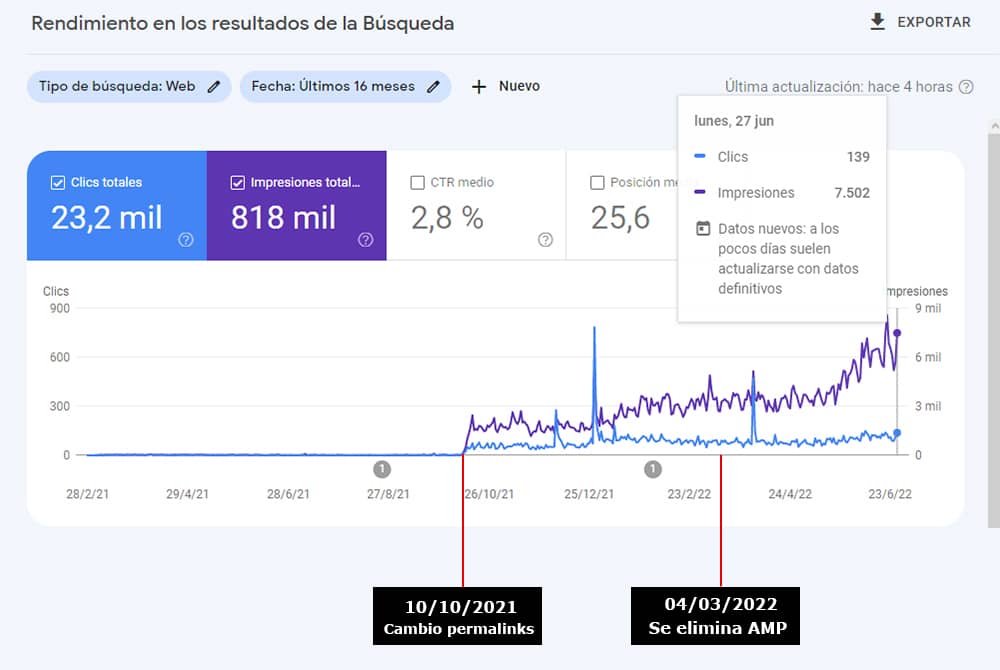
It's been almost four months i removed the AMP pages and we can already take stock. There has been no negative impact.
- Google rankings have not been lost, they have improved and have also been gained in other search engines such as Bing and Yandex.
- Click-through figures on Google search engine results have gone up and remain stable
- Impressions continue to grow at a good pace
- Time on page and page views per session also continue to rise.
These results are not only a consequence of this action, as removing AMP pages was a further move as part of the a plan optimisation process, and other thingswhich started in October 2021 with the change of permalinks to shorten URLs.
In the last 120 days I've read more than one person commenting that they have ditched AMP pages or are planning to do so, and some media outlets are also starting to do away with them.
In April, the browser Brave and the search engine DuckDuckGo decided to take action against AMP pages.
Brave De-AMP
On 19 April Brave announced a new feature called De-AMP that allows its browser users to skip Google-hosted AMP pages and instead visit the publisher's native pages directly.
Brave believes that AMP harms users' privacy, security and internet experience and helps Google grow its monopoly and further control the direction of the web.
They predict that "AMP 2.0" will be even worse. Google is developing an AMP tracking system based on its "Signed Exchange" (SXG) and "WebBundle" proposals."This, not formally called AMP 2.0, has the same goals: to allow Google's servers to serve more of the Web, and in ways that give users less control over how they interact with that content, and with less information about where that content comes from."
All the info about De-AMP on its website.
DuckDuckGo won't show AMP pages
The search engine DuckDuckGo also considers that AMP pages are detrimental to privacy and that Google gives them priority treatment over native pages.
DuckDuckGo believes that "AMP technology is bad for privacy because it allows Google to track users even more (which is already a ton). And Google uses AMP to further entrench its monopoly by forcing publishers to use the technology by prioritising AMP links in search and favouring Google ads on AMP pages."
Also on 19 April, in a tweet announced that its applications and extensions now protect against Google AMP tracking. When a Google AMP page is loaded or shared anywhere from DuckDuckGo apps (iOS/Android/Mac) or extensions (Firefox/Chrome), the original publisher's webpage will be used instead of the Google AMP version.
They are also working on a new browser privacy-focused.







